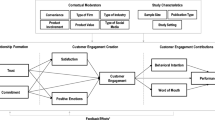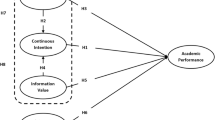Abstract
Medical tourism has been suggested to have a huge impact on the global economy. To date, however, very little attention has been paid to the cognitive and affective perspectives of medical tourism. In this study, we used the expectation confirmation theory as the theoretical base and empirically examined the impact of expectations, perceived performance, and satisfaction on medical tourists’ intentions to continue the usage of overseas medical services. A total of 118 participants were analyzed using partial least squares technique and the results illustrated that overseas medical service expectation was related to perceived overseas medical service performance, which in turn determined the confirmation of expectation. The results also demonstrated that medical tourists’ confirmation of expectation predicted their satisfaction, which in turn affected their intentions to continue the usage of overseas medical service. Findings of this study may help medical service providers improve their medical services more effectively.
Similar content being viewed by others
References
Alleman BW, Luger T, Reisinger H, Martin R, Horowitz MD, & Cram P (2011) Medical tourism services available to residents of the United States. Journal of General Internal Medicine 26(5):492–497.
Anderson EW, Sullivan MW (1993) The antecedents and consequences of customer satisfaction for firms. Marketing Science 12(2):125–143.
Babakus E, Mangold WG (1992) Adapting the SERVQUAL scale to hospital services: An empirical investigation. Health Service Research 26(6):767–80.
Bennett P, Murphy S (1997) Psychology and health promotion. Open University Press. Buckingham.
Bhattacherjee A (2001) Understanding information systems continuance: An expectation-confirmation model. MIS Quarterly 25(3):351–370.
Block L, Kramer T (2009) The effect of superstitious beliefs on performance expectations. Journal of the Academy of Marketing Science 37(2):161–169.
Cassidy TN, Bauman BM, & Boudreaux ED (2007) The disconfirmation paradigm: Throughput times and emergency department patient satisfaction. Journal of Emergency Medicine 32(1):7–13.
Chin WW (1998) The partial least squares approach to structural equation modeling In: Marcoulides GA (ed) Modern business research methods. Lawrence Erlbaum Associates, Mahwah, NJ:295–336.
Chin WW, Marcolin BL, & Newsted PR (2003) A partial least squares latent variable modeling approach for measuring interaction effects: Results from a Monte Carlo simulation study and an electronic-mail emotion/adoption study. Information Systems Research 14(2):189–217.
Cho WH, Lee H, Kim C, Lee S, & Choi K (2004) Patient assessments: The impact of visit frequency on the relationship between service quality and outpatient satisfaction: A South Korean Study. Health Services Research 39(1):13–34.
Conner M, Norman P (2005). Predicting health behavior: Research and practice with social cognition models. Open University Press, Buckingham.
Deloitte LLP (2010) Medical tourism: Emerging phenomenon in health care industry-2008 report. Available via from DIALOG. http://www.deloitte.com/view/en_US/us/press/Press-Releases/cb7614fabd184210VgnVCM200000bb42f00aRCRD.htm. Accessed 15 August 2011.
Forgione DA, Smith PC (2006) Medical tourism and its impact on the US health care system. Journal of Health Care Finance 34(1):27–35.
Fornell C, Larcker DF (1981) Evaluating structural equation models with unobservable variables and measurement error. Journal of Marketing Research 18(1):39–50.
Gallivan MJ, Spitler VK, & Koufaris M (2005) Does information technology training really matter? A social information processing analysis of coworkers’ influence on IT usage in the workplace. Journal of Management Information Systems 22(1):153–192.
Gilbert FW, Lumpkin JR, & Dant R (1992) Adaptation and customer expectations of health care options. Journal of Health Care Marketing 12(3):46–55.
Guiry M, Vequist DG (2011) Traveling abroad for medical care: U.S. medical tourists’ expectations and perceptions of service quality. Health Marketing Quarterly 28(3):253–269.
Heung VCS, Kucukusta D, & Song H (2010) A conceptual model of medical tourism: Implications for future research. Journal of Travel and Tourism Marketing 27(3):236–251.
Horowitz MD, Rosenweig JA (2007) Medical tourism: Health care in the global economy. Physician Executive 33(6):24–30.
Hume M, Mort GS (2010) The consequence of appraisal emotion, service quality, perceived value and customer satisfaction on repurchase intent in the performing arts. Journal of Service Marketing 24(2):170–182.
James O (2009) Evaluating the expectations disconfirmation and expectations anchoring approaches to citizen satisfaction with local public services. Journal of the Public Administration Research and Theory. 19(1):107–123.
Jarvis CB, MacKenzie SB, & Podsakoff PM (2003) A critical review of construct indicators and measurement model misspecification in marketing and consumer research. Journal of Consumer Research 30(2):199–218.
Jones MA, Suh J (2000) Transaction-specific satisfaction and overall satisfaction: An empirical analysis. Journal of Service Marketing 14(2/3):147–159.
Kellar GM, Preis MW (2011) Satisfaction and repurchase intention: B2B buyer-seller relationships in medium-technology industries. Academy of Information and Management Sciences Journal 14(2):11–26.
Kim B (2011) Understanding antecedents of continuance intention in social-networking services, Cyber Psychology. Behavior and Social Networking 14(4):199–205.
Liang H, Saraf N, Hu Q, & Xue Y (2007) Assimilation of enterprise systems: The effect of institutional pressures and the mediating role of top management. MIS Quarterly 31(1):59–87.
Lin D, Sheu I, Pai J, Bair A, Hung C, Yeh Y, & Chou M (2009) Measuring patient’s expectation and the perception of quality in LASIK services Health and Quality of Life Outcomes 7(1):63–70.
Mason A, Wright KB (2011) Framing medical tourism: An examination of appeal, risk, convalescence, accreditation, and interactivity in medical tourism web sites. Journal of Health Communication 16(2):163–177.
Mckinney V, Yoon K, & Zahedi F (2002) The measurement of web-customer satisfaction: An expectation and disconfirmation approach. Information Systems Research 13(3):296–315.
Oliver RL (1980) A cognitive model for the antecedents and consequences of satisfaction. Journal of Marketing Research 17(4):460–469.
Oliver RL (1993) Cognitive, affective, and attribute bases of the satisfaction response. Journal of Consumer Research 20(3):418–430.
Parasuraman A, Zeithaml VA, & Berry LL (1985) A conceptual model of service quality and its implications for future research. Journal of Marketing 49(4):41–50.
Parasuraman A, Zeithaml VA, & Berry LL (1991) Refinement and reassessment of the SERVQUAL scale. Journal of Retailing 67(4):420–450.
Perrott BE (2011) Health service delivery in Australia: Gaps and solutions. Journal of General Management 36(3):53–66.
Ramirez de Arellano AB (2007) Patients without borders: The emergence of medical tourism. International Journal of Health Services 37(1):193–198.
Reddy S, York VK, & Brannon LA (2010) Travel for treatment: students’ perspective on medical tourism. International Journal of Tourism Research 12(5):510–522.
Robinson JP, Shaver PR, & Wrightman LS (1991) Measures of Personality and Social Psychological Attitudes. Academic Press, San Diego, CA.
Segars AH (1997) Assessing the unidimensionality of measurement: A paradigm and illustration within the context of information systems research. Omega 25(1):107–121.
Vijaya RM (2010) Medical tourism: Revenue generation or international transfer of healthcare problems? Journal of Economic Issues 44(1):53–69.
Woods RC (1993) Managing to meet employee expectations: Quality improvement tools narrow the gap between employee expectations and company resources. Human Resource Planning 16(4):13–28.
Zboja JJ, Voorhees CM (2006) The impact of brand trust and satisfaction on retailer repurchase intentions. Journal of Services Marketing 20(6/7):381–390.
Author information
Authors and Affiliations
Corresponding author
Additional information
Shih Yung Chou is an Assistant Professor of Management at the University of Texas of the Permian Basin. He holds a Ph.D. in Management from Southern Illinois University Carbondale. His research has appeared in Management Research Review, Computers in Human Behaviors, European Journal of Management, Journal of Management Research, and among others. His current research interests include organizational citizenship behavior, group dynamics, and consumer behavior in e-commerce.
Dr. Angelina I. T. Kiser is an associate professor and department chair for management, management information systems, international business, and sports management at the University of the Incarnate Word in San Antonio, TX. Her research interests include business ethics, diversity, technology in education, and the growth of medical tourism. She has presented her work at peer reviewed national and international conferences and has published in numerous peer reviewed journals. Dr. Kiser has traveled to several countries including England, France, Switzerland, Canada, Greece, Guatemala, and Mexico where she has had the opportunity to explore business and medical issues. She has also conducted study abroad experiences with students where they have the chance to visit business and medical facilities in order to gain a better understanding of their policies and procedures. Dr. Kiser teaches a variety of business management courses that include a global perspective, and she emphasizes the importance of working in a diverse workforce.
Erlinda Lopez Rodriguez is the Clinical Coordinator for the University of the Incarnate Word and Supervisor of Imaging Ser-vices for South Texas Radiology Imaging Center. She has extensive experience in IT, radiology, organizational development, education, and project management. She is also a sit reviewer for the Joint Review Committee of Nuclear Medicine Technology Programs. She received an MBA degree from Capella University with a concentration in Healthcare Management and is currently in the Doctoral Program in Public Heal with a concentration in Leadership and Advocacy at Capella University.
Rights and permissions
About this article
Cite this article
Chou, S.Y., Kiser, A.I.T. & Rodriguez, E.L. An expectation confirmation perspective of medical tourism. J Serv Sci Res 4, 299–318 (2012). https://doi.org/10.1007/s12927-012-0012-3
Received:
Accepted:
Published:
Issue Date:
DOI: https://doi.org/10.1007/s12927-012-0012-3




